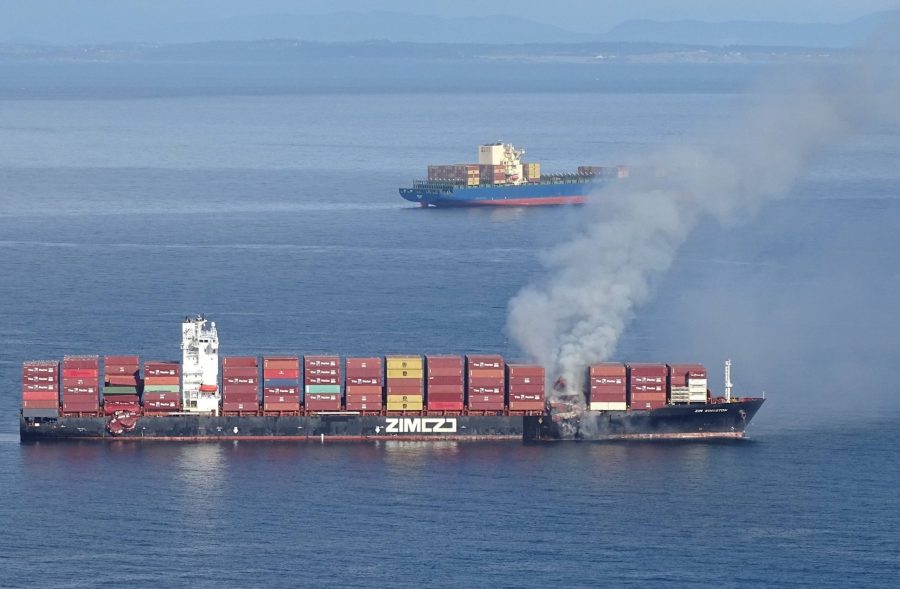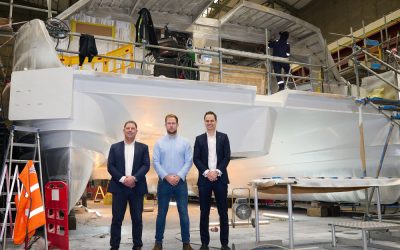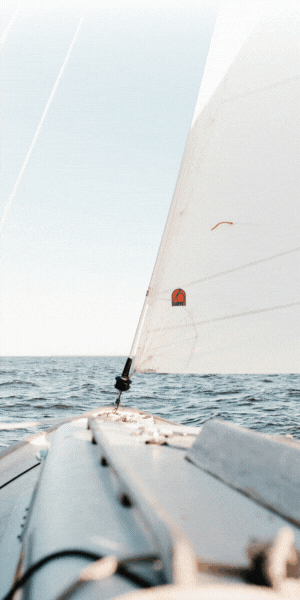Fires onboard ships are a major problem facing the maritime industry. A small blaze can quickly spread out of control and engulf a whole vessel without proper firefighting and detection. For shipping enterprises, a fire has the potential to destroy large quantities of cargo in a short space of time, leading to huge insurance costs.
According to EMSA, container ship fires have become an increasingly noticeable trend in recent years. Cargo fire safety onboard container vessels is a subject with two key elements. The first is related to the ship systems for detection and response to fires, and the second on the carriage, handling, declaration and segregation of dangerous goods (DGs).
A recent initiative by Safetytech Accelerator, an organsation established by Lloyd’s Register (LR), hopes to tackle this problem head on by engaging with major industry players. Cargo Fire and Loss Innovation Initiative (CFLII), launched in February 2023, aims to engage with technology suppliers from outside the maritime industry to tackle to the problem of container ship fires. The CFLII is broad in terms of scope, aiming to gather as much information as possible from different researchers and stakeholders. The aim is to let partner organisations decide where the focus will be.
Novel solutions
By encouraging third parties to engage with the problem Safetytech Accelerator aims to find novel solutions by providing answers not previously considered. The organisation also aims to work with clients, including Maersk and Evergreen, to look for safety and risk challenges. The overarching aim of Safetytech Accelerator’s work is to use evidence gained from conducting studies to change the way that regulatory bodies look at the uses of technology in the maritime sector.
In terms of fire detection and prevention the maritime industry is often behind other sectors in terms of performance. Cargo misdeclaration or non-declaration is also a common problem in the supply chain and improperly labelled cargo is often a cause of fire. Undeclared cargo can quickly become hazardous and escalate into a fire onboard a vessel. This can have catastrophic consequences as many vessels don’t have adequate detection or firefighting systems in place.
While the size of container ships has grown and the volume of cargo, they carry has increased firefighting technology has not kept pace with these developments. According to Allianz, container vessels have grown 1,500% since 1968. Additionally firefighting systems in existence are largely in place to ensure the safety of the crew to comply with International Convention for the Safety of Life at Sea (SOLAS) requirements.
As a result, firefighting methods for dealing with a blaze started amongst cargo are not adequate. Some methods do exist to extinguish fires rapidly, for example the use of CO2. However, this is not always reliable as it can be inefficient. Particularly, if cargo is packed densely meaning that CO2 released will not be able to work properly.
Fire detection systems on deck are not currently required under current regulations. However, some regulations regarding the handling of cargo, such as the IMO’s 1972 Convention for Safe Containers (CSC 1972). By addressing the causes of container ship fires and researching the technological solutions that exist Safetytech Accelerator, along with its partner organisations, aims to change this, allowing for the installation of more innovative methods of fire detection. Current methods are not capable of detecting changes in temperature which can fluctuate during a voyage. Other environmental issues, such as the generation of heat by refrigerated containers, also pose a problem.
Collaboration seen as key
Collaboration is key to the research model. The Initiative is exploring the potential for emerging technologies and through open-innovation hopes to promote the work of smaller startups who are working on applicable solutions to the problem. While Safetytech Accelerator currently works primarily with the container sector it also aims to research fires onboard PCTCs which are facing increasing pressure to tackle the problem of lithium-ion battery combustion.
Since the start of the project Safetytech Accelerator and its research partners have considered various technological solutions. Advanced methods of detection, such as infrared or optical fibre could provide an answer as does the use of thermal imaging cameras used in large-scale forest fire detection. Just one example of the research initiative looking at technology outside the realm of the maritime industry. Ultimately, one goal of the project is to find cost effective solutions that are robust enough to withstand the strain of oceangoing voyages and last between vessel services.
By working with various partner organisations Safetytech Accelerator aims to provide the answers to containership fires and harness a range of different voices to do so.







